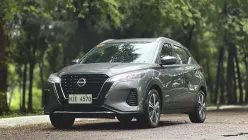Battery technology continues to improve and evolve, with the aim of striking a balance between shrinking size and increasing range. Nissan is showing that old electric vehicle (EV) batteries can still have a second life after they have served their original purpose.
Reused Nissan LEAF batteries serve as backup power at train crossings
The carmaker is undergoing a trial run to repurpose Nissan LEAF batteries as an emergency power supply for railroad crossings, in cooperation with 4R Energy Corporation and the East Japan Railway Company (JR East). For the pilot testing, the Atago crossing on the Joban line was chosen, which runs across Minamisoma City in Fukushima Prefecture.
Rail companies employ emergency power supply units at train crossings to ensure that features such as signaling devices always work properly, ensuring rail and road safety. The units are especially critical during maintenance work and temporary power outages, and typically use lead-acid batteries. In January 2021, these began to be replaced by used Nissan LEAF lithium-ion batteries.
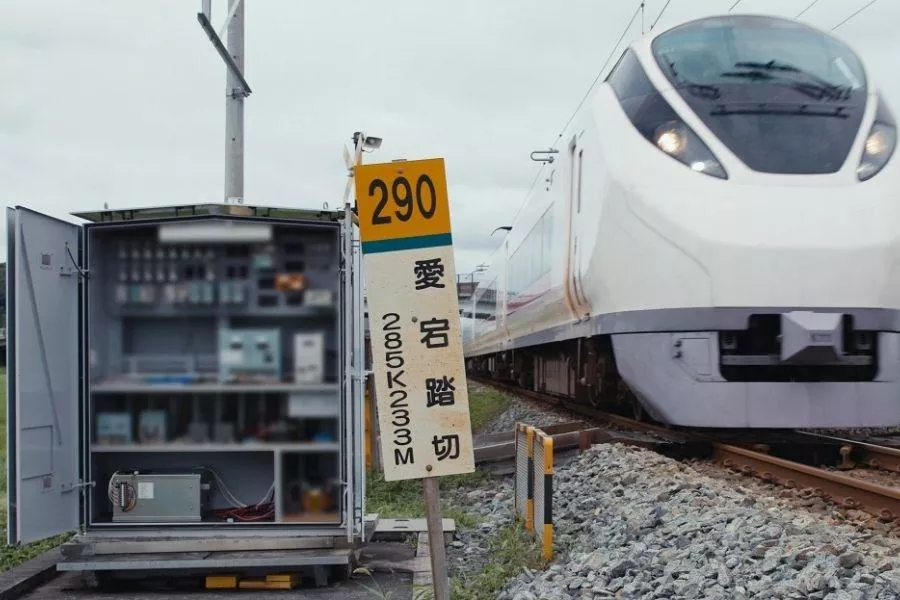
The program is undergoing pilot testing at the Atago crossing on JR East's Joban line
Nissan says that a LEAF battery retains between 60 and 80 percent of its storage capacity at the end of its life cycle. Reusing these batteries allows the company to use the remaining capacity for other purposes, whether it’s new replacement vehicle batteries or stationary power sources.
Repurposing EV batteries reduces the amount of rare materials that would otherwise be used by in making a new battery from scratch, as well as the accompanying carbon emissions. It also increases the value of EVs in general by promoting their wider adoption by the public.
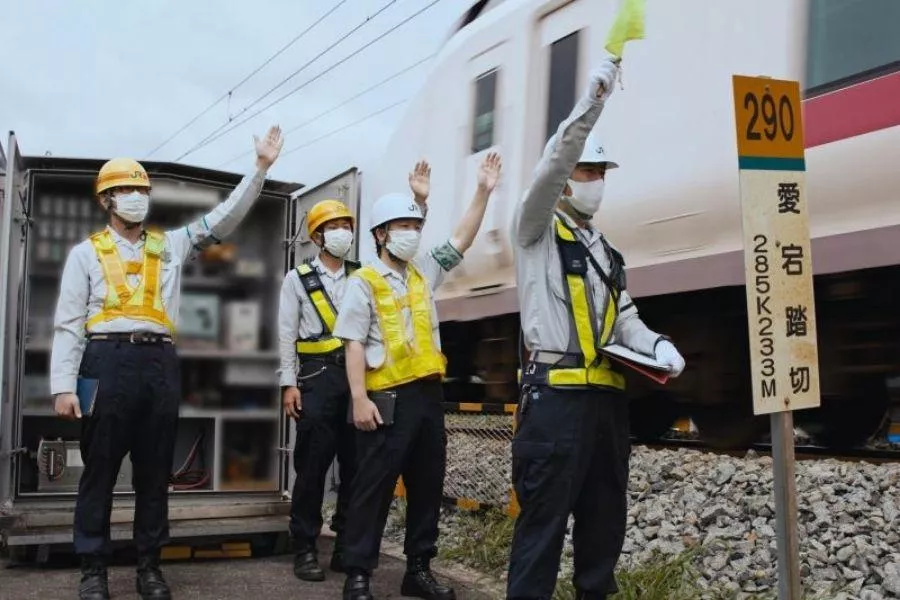
Remote monitoring of lithium-ion batteries means personnel can be optimized for other tasks
According to JR East R&D Center assistant chief researcher Kaito Tochihara, making the switch also improves the battery’s performance itself. “With lead-acid batteries, we have to periodically visit railroad crossings to check the state of charge and any deterioration.” He says that repurposed lithium-ion batteries have control systems attached similar to EVs that allow them to be checked remotely, improving maintenance standards.
Another bonus is that the reused EV batteries require only 1/3 of the charging time needed by standard batteries. They also last an average of 10 years, compared to the usual 3-7 years.
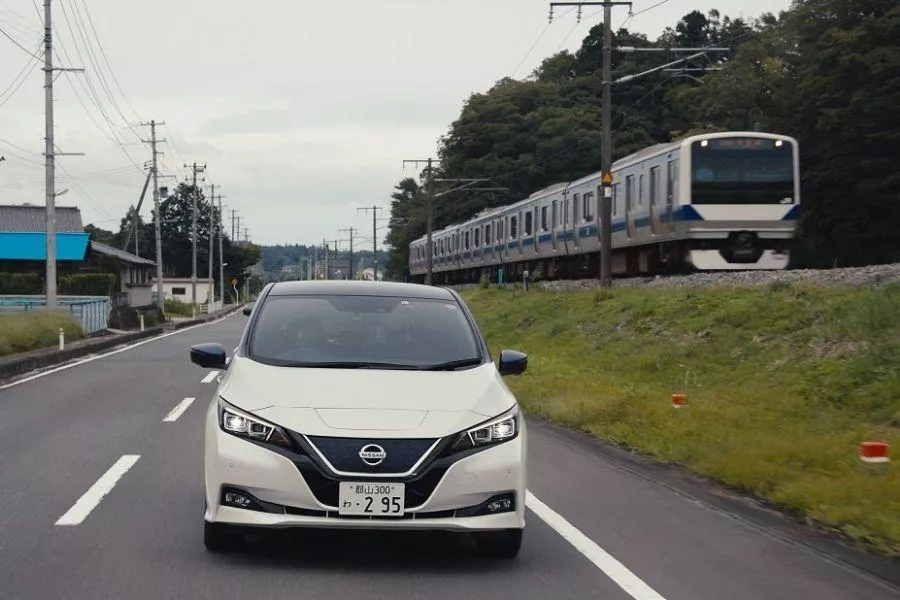
Applications like these can help increase the value of EVs and promote their use
4R Energy Corporation, one of Nissan’s partners in the project, began operations in 2010 when the LEAF debuted. The company’s facilities in Fukushima receives thousands of used batteries every year for repurposing. Apart from holding a stellar track record for safety and compliance with international standards for recycling, Nissan LEAF batteries are designed to adapt to various climates.
The repurposed batteries are modified to withstand field conditions such as lightning strikes, which could cause a voltage surge. This will be tested as the program enters its first autumn season, where lightning storms and typhoons are prevalent.
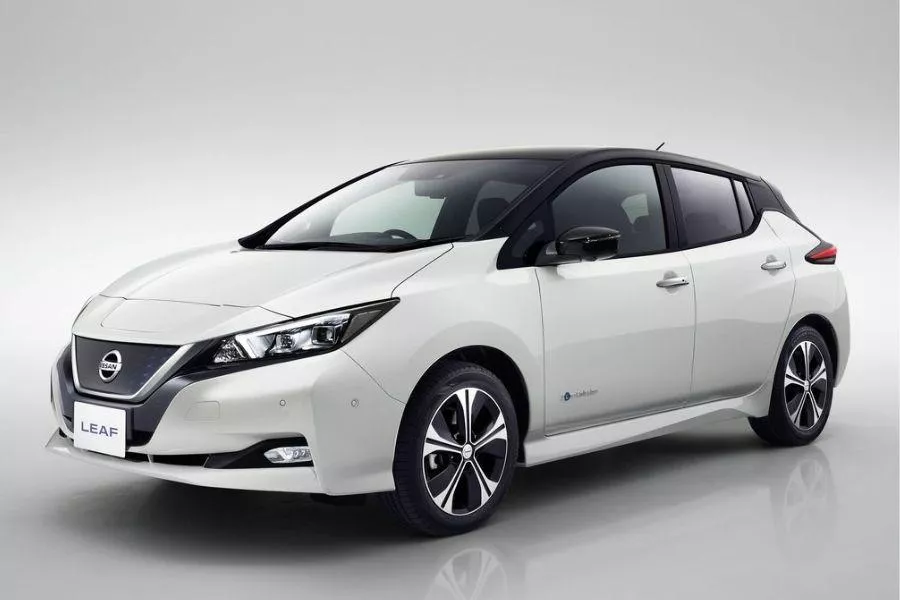
Will this convince you to get an EV in the future?
“Railways powered by electricity come in various sizes,” Tochihara said. If we can confirm, in this trial, that repurposed batteries are safe for use on railways, then I think we can expect this initiative to be expanded. For example, in wireless communications equipment.”
The Nissan LEAF is currently available in the Philippines, featuring running costs that are reportedly just half of what you'd normally spend on a gasoline car. A range of up to 311 kilometers is possible on a single charge, and maintenance is nearly 40 percent cheaper than combustion-powered vehicles. The sticker price of Php 2,798,000 isn't exactly loose change, but knowing that the LEAF's battery can still be repurposed should be an argument in favor of Nissan's popular EV.
Catch more electrifying industry developments at Philkotse.com.
Know more about Nissan LEAF 2026

The Nissan LEAF 2025 Philippines is a 5-door hatchback fitted with an all-electric powertrain. It is offered in the Philippines with one variant only which is priced at Php 1,998,000. Powering this electric vehicle (EV) is a synchronous electric motor capable of generating 148 horsepower and 320 Nm of torque. A 40-kWh lithium-ion battery is used, which aids the model's 311 km range. Only a single-speed gear reduction system is utilized to exclusively send power to the front wheels.
Dimensions-wise, the LEAF has a length of 4,490 mm, a width of 1,788 mm, and a height of 1,540, with ground clearance and wheelbase rated at 155 mm and 2,700 mm, respectively. This is the first and only commercially available EV in the country. But in the all-electric options, the alternatives of Filipino car buyers include the Porsche Taycan, Hyundai Ioniq EV, and BYD E6.
>>> New and used Nissan LEAF 2025 for sale in the Philippines
Nissan LEAF Launch
The first-generation Nissan LEAF was initially introduced in the United States and Japan in December 2010. Due to its striking road presence and overall impressive performance, it gained recognitions such as the Green Car Vision Awards in 2010, the European Car of the Year and the World Car of the Year both in 2011 and the Car of the Year Japan for two consecutive years. Also, this multi-awarded electric vehicle is acclaimed as the world’s top-selling as of December 2019.
The second-generation Nissan LEAF was unveiled in October 2017. It was made available in the US and Europe a year later. The Nissan LEAF made its Philippines debut in May 2021. Nissan Philippines is offering the LEAF at Php 2,798,000. Available colors for the 2025 Nissan LEAF with the two-tone blacked-out roof include Pearl White, Vivid Blue, Gun Metallic, and Magnetic Red.
Nissan LEAF Exterior
The new Nissan LEAF comes with a sporty exterior design, and it looks similar to the global model that’s currently being sold in Japan, the United States, and Europe. In terms of dimensions, the LEAF electric vehicle measures 4,480mm long, 1,790mm wide, and 1,540mm tall. It also has a wheelbase of 1,540mm and a ground clearance of 155mm.
The Nissan LEAF is fitted with halogen headlamps with LED daytime running lights. It also has front fog lamps and a rear fog lamp, rain-sensing wipers, electronically adjustable and foldable front mirrors, and a rear wiper. The said electric vehicle also comes with Nissan’s signature V-motion grille. The LEAF is finished off with a set of 16-inch alloy wheels, wrapped with 205/55R16 tires.
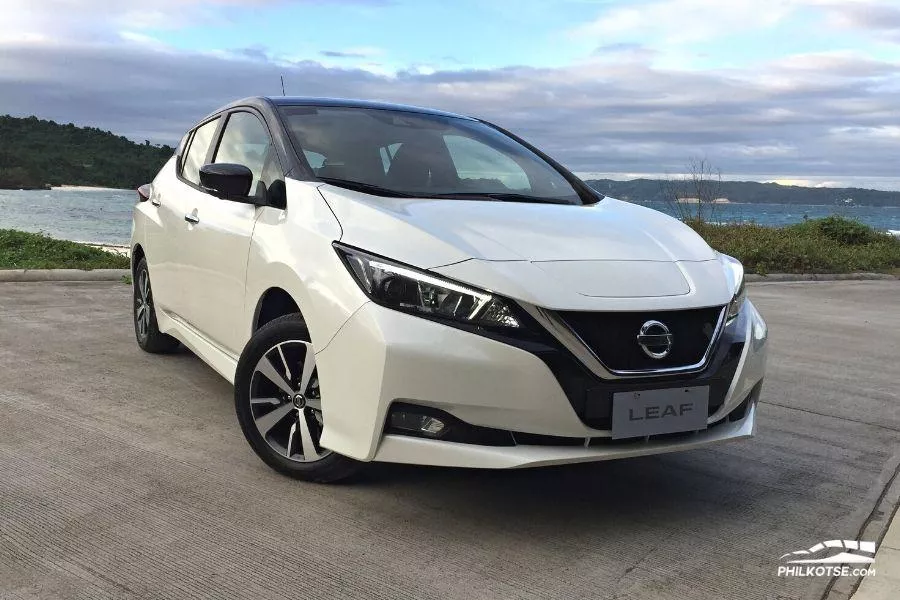
Nissan LEAF Interior
The Nissan LEAF 2025 can accommodate up to five occupants. It has a dark interior theme along with an automatic climate control system, and fabric-clad seats. The LEAF also comes with a six-way manually adjustable driver’s seat, a leather-wrapped steering wheel with tilt adjustment, a push-to-start button, and a multi-information meter.
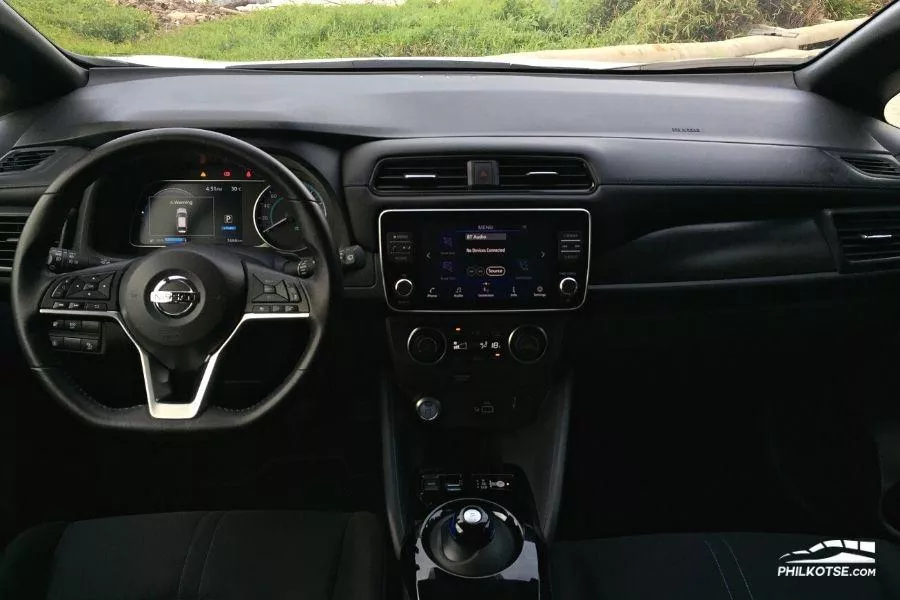
Technology & Safety Features
The LEAF Philippines is integrated with several techs and safety features. Placed at the center of the dashboard is an eight-inch touchscreen with Apple CarPlay and Android Auto. It also comes standard with a 360-degree view camera that can detect moving objects. The LEAF also has a driver attention alert system that warns one of the things moving in the car’s blind spots, rear end, and whenever you’re departing a lane. Adding to the list of the LEAF’s features are the following: hill-start assist, vehicle dynamic control, and anti-lock braking with electronic brake-force distribution. On the more passive side, the Nissan-made EV comes with a total of six airbags.
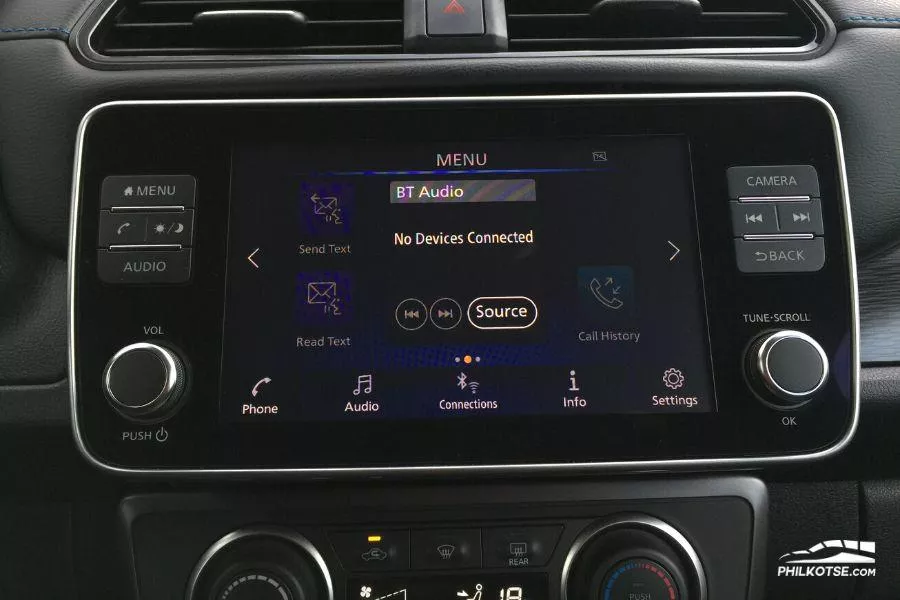
Platform & Chassis
The new Nissan LEAF is fitted with an independent front strut suspension and torsion beam suspension at the rear.
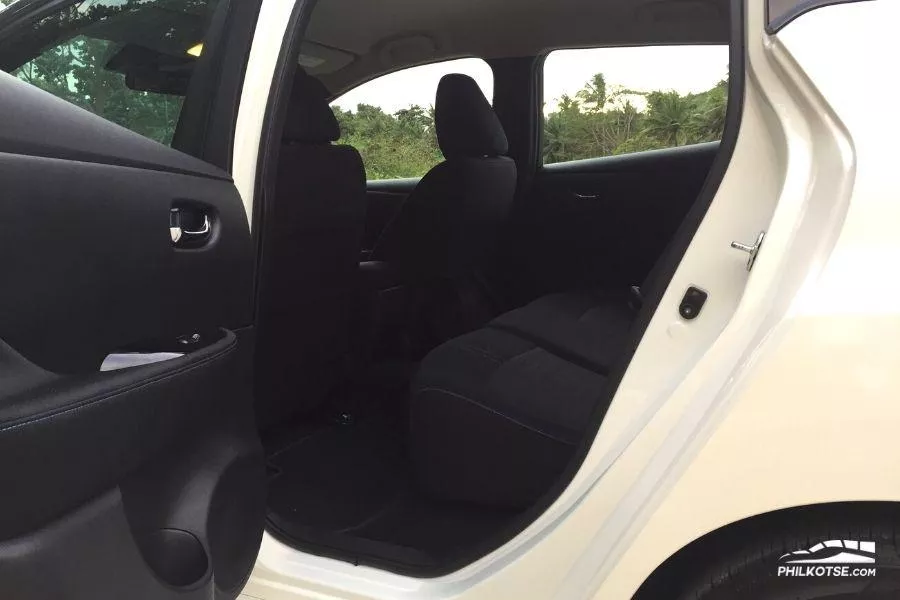
Engine & Drivetrain
The Nissan LEAF EV is powered by an electric motor that delivers 148 hp and 320 Nm of torque. Power is sent to the front wheels via a single-speed gear reduction system. The Nissan-made EV uses a 40-kWh lithium-ion pack with a 311-kilometer range. This can be charged with your bog-standard wall outlet, and doing so will fill it up fully in 15 to 18 hours. However, a quick charging station cuts down the LEAF’s charging time down to just 40 minutes to an hour.
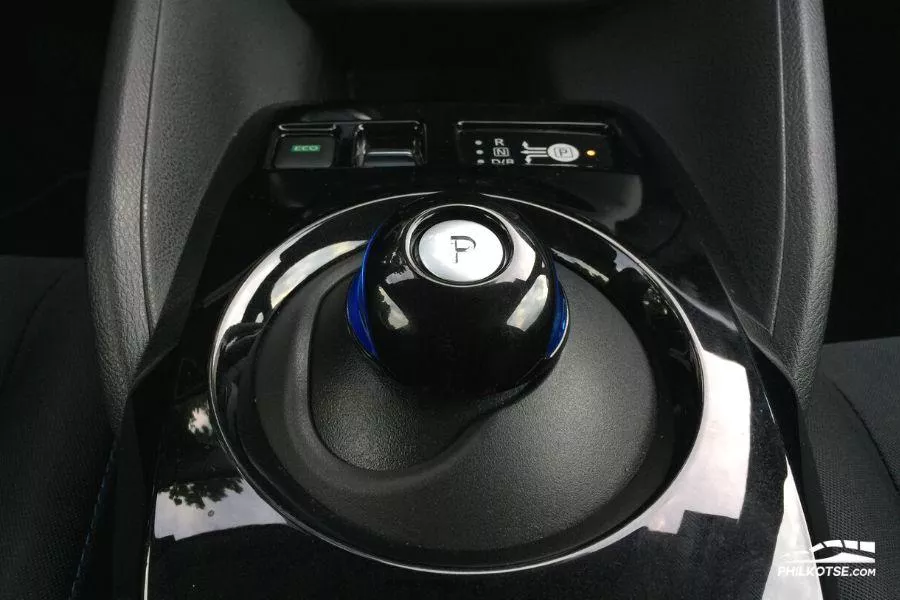
Available colors for the Nissan LEAF are Gun Metallic, Vivid Blue, Magnetic Red, and Pearl White, all of which come with a Pearl Black roof.
The Nissan LEAF still doesn't have a lot of competition in the country as the local EV market is still relatively new.
Nissan LEAF 2025 Price List
| Variant | Price |
|---|---|
| Nissan LEAF 40kWh | ₱1,998,000 |
Nissan LEAF Pros & Cons
Pros
-
Offers 311 km of range
-
Sleek styling with the two-tone finish
-
Cheaper to run combustion engines
Cons
-
Relatively expensive price tag
-
EV infrastructure is still in its early stages.
-
First-time EV owners might expect more in terms of driving experience
Nissan LEAF FAQs
1. How much does a Nissan LEAF 2025 cost in the Philippines?
In the Philippines, it is available in one variant which is priced at P1,998,000.
2. What problems does the Nissan LEAF have?
Nissan LEAF had some issues about reliability, with some electrical and brake concerns.
3. What is the body type of Nissan LEAF?
The body type of LEAF is a hatchback.
4. Does the Nissan LEAF 2025 have a reverse camera?
Yes, it does. With the reverse camera, you can see what is behind the car on the screen.
5. What is the Length of Nissan LEAF Philippines?
The length of LEAF is 4,490 mm.
₱ 1,998,000
ExploreRecent posts
- Nissan LEAF low running costs Jul 27, 2021
- NIssan LEAF range Philippines May 11, 2021
- nissan leaf charging methods Jul 27, 2021
- Nissan LEAF 10 years 500,000 units Dec 05, 2020


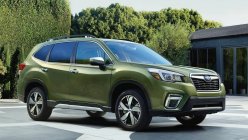


![[FOR FUN] Top 5 anime series that car enthusiasts will love](https://img.philkotse.com/crop/94x52/2019/11/06/xgWRvxxG/top-anime-for-car-lovers-5c8c.jpg)
